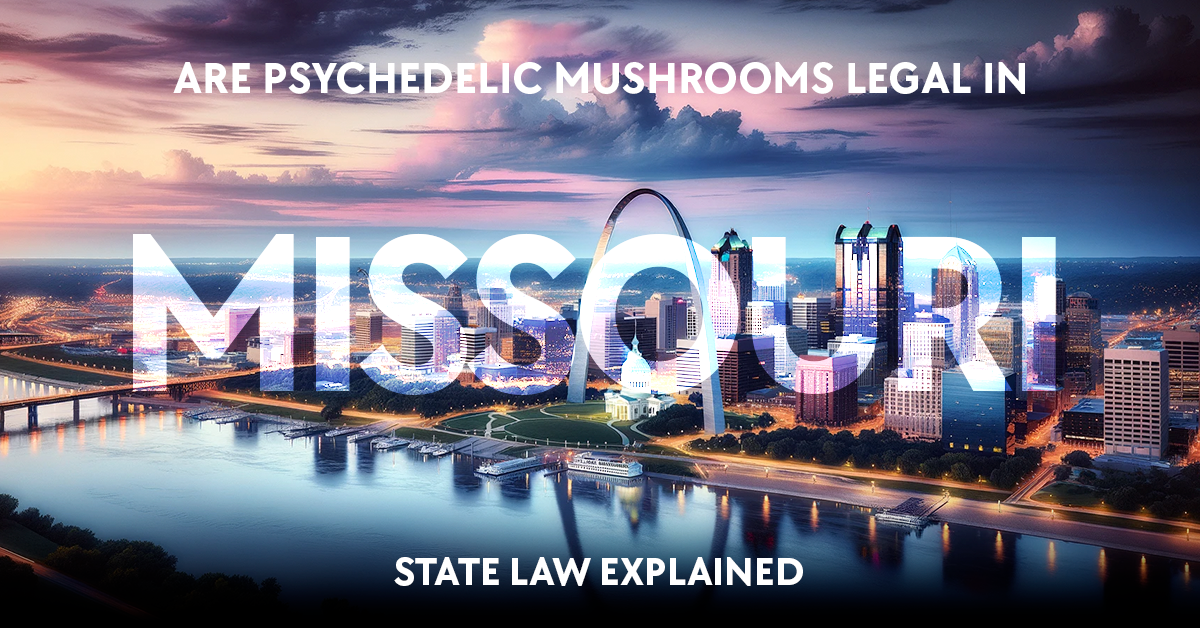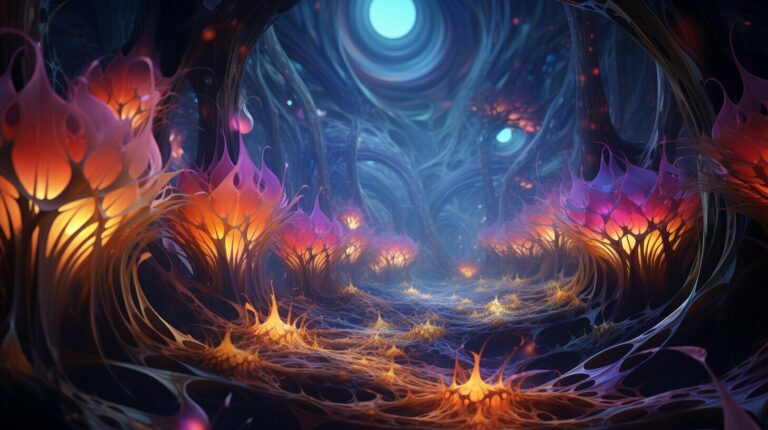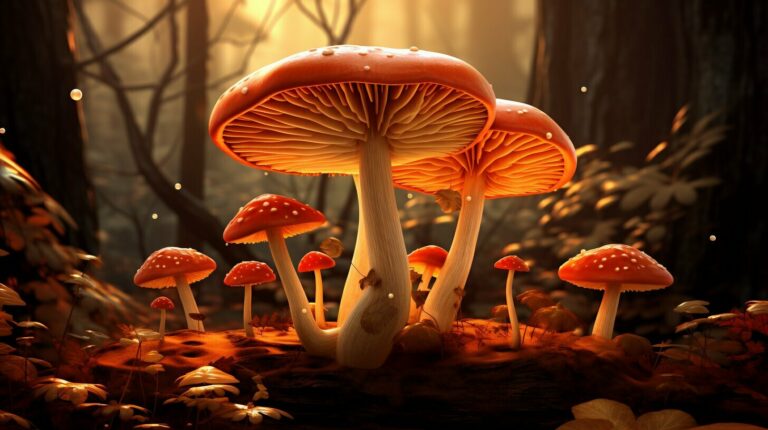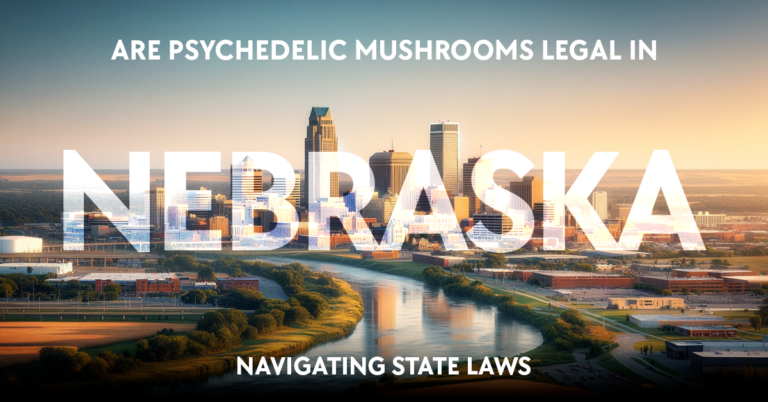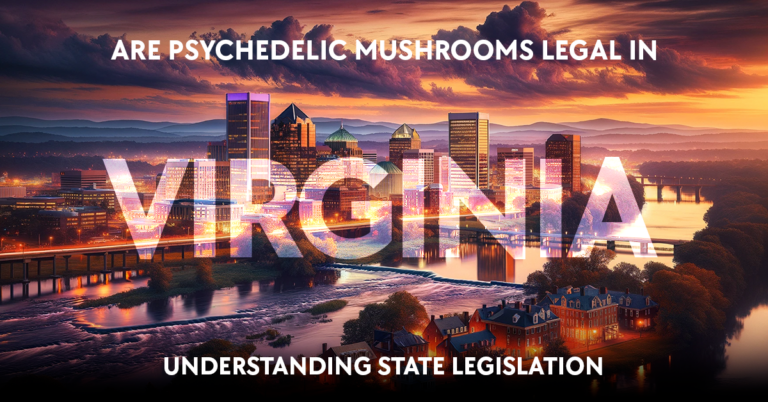The question of the legality of psychedelic mushrooms, often referred to as “magic mushrooms” due to their psilocybin content, varies across the United States. In Missouri, the laws are specific regarding these substances. Psychedelic mushrooms are illegal and classified as Schedule I controlled substances under Missouri law, meaning possession, sale, or cultivation can lead to criminal charges. The state of Missouri has taken measures to prevent the use of these substances, with certain locales such as St. Peters making headlines for enacting local bans on the sale of specific hallucinogenic plants.
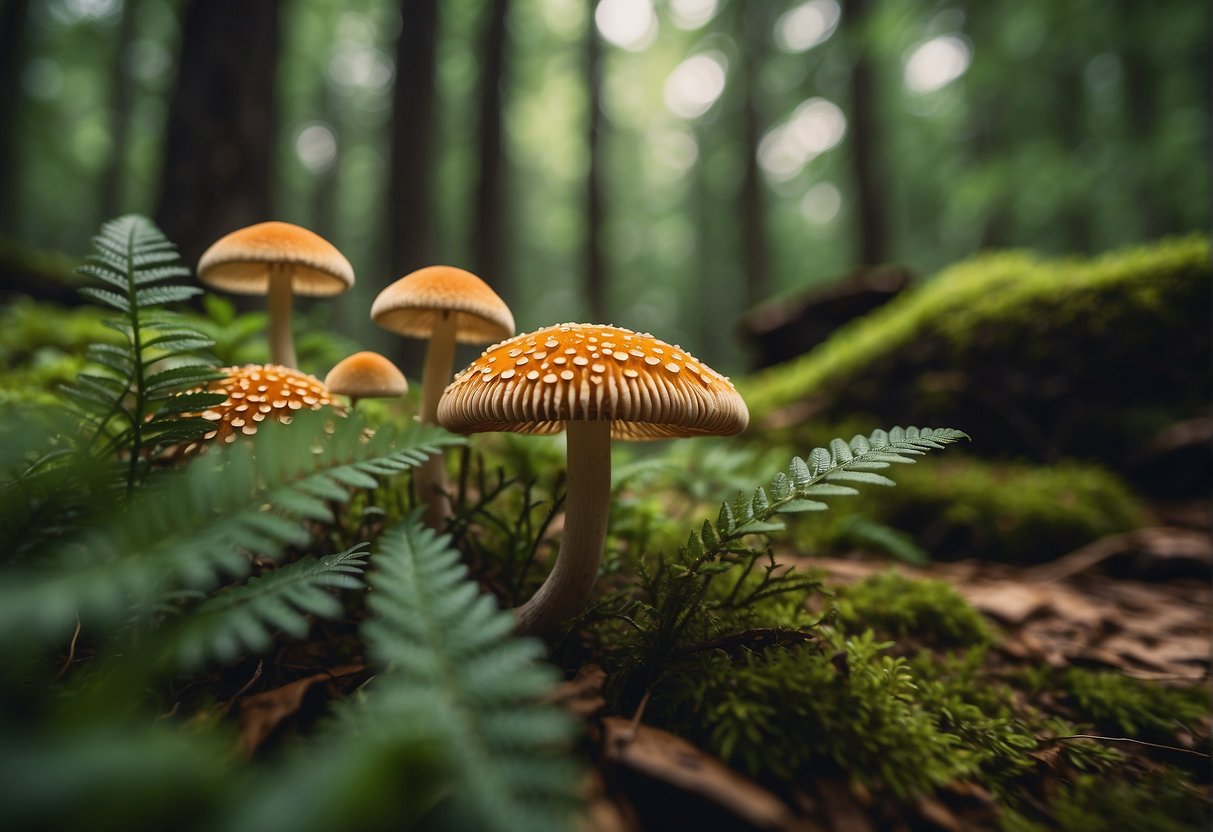
Understanding the nuances of the law is crucial, as legislation can differ not just by state, but also at local levels. While recent shifts in some states towards a more relaxed stance on psychedelics have sparked discussions nationwide, these changes do not apply to Missouri. It’s important to stay informed about your state’s position on this issue as it evolves, considering the ongoing research and discussions about the potential therapeutic benefits of psychedelics which could influence future legislative reform efforts.
Legal Status of Psychedelic Mushrooms in Missouri
Table of Contents
https://www.youtube.com/watch?v=Xs31mu4GrSI&embed=true
The legal landscape surrounding psychedelic mushrooms, also known as psilocybin mushrooms, is complex and varies from state to state. In Missouri, these substances are firmly regulated under both state and federal law.
Overview of State Laws
In Missouri, psilocybin mushrooms remain a Schedule I controlled substance under MO Rev Stat § 195.017, classifying them as drugs with a high potential for abuse and no accepted medical use. Possession, sale, or cultivation of these mushrooms is illegal and can lead to severe legal consequences. The state has not enacted any laws to change this status, keeping the legality of psilocybin mushrooms clearly under the umbrella of criminalized substances.
Federal vs. State Perspectives
At the federal level, psychedelic mushrooms are also considered a Schedule I controlled substance. This classification means that even if state policies were to shift toward decriminalization or legalization, Missouri residents could still face federal penalties for possession or distribution. As it stands, there has been no divergence in Missouri’s state laws from the federal perspective regarding the legal status of these substances.
Current Legal Consequences
If you’re found in possession of psychedelic mushrooms in Missouri, you could face serious legal penalties. The severity of these penalties often depends on the amount of the controlled substance in question and whether you’re charged with possession, distribution, or manufacturing. Criminalization can lead to charges ranging from misdemeanors to felonies, ultimately resulting in fines, imprisonment, or both. There has been no move toward decriminalization in Missouri, so these potential consequences remain in force for anyone found in violation of the state’s controlled substance laws.
Psychedelic Mushrooms and Mental Health

Psychedelic mushrooms, specifically those containing psilocybin, have garnered significant attention for their potential in treating a variety of mental health conditions. Research indicates that psilocybin may offer therapeutic benefits for disorders that are often resistant to conventional treatments.
Therapeutic Use and Research
Your understanding of psychedelic mushrooms in the context of mental health is incomplete without acknowledging the growing body of research highlighting their therapeutic use. In medical and psychological research settings, psilocybin, the active compound in psychedelic mushrooms, is being examined for its efficacy in treatment-resistant depression, and its potential to catalyze therapeutic breakthroughs where traditional methods falter. Studies like those published in JAMA Psychiatry provide insight into how reforms in legislation are opening doors for further research and potential therapeutic applications.
Conditions Treated with Psilocybin
Your awareness of health conditions potentially treated by psilocybin is crucial, as it includes several debilitating disorders. Clinical trials and studies are exploring the effects of psilocybin on major depressive disorder, post-traumatic stress disorder (PTSD), and addiction. Information derived from population studies indicate that psilocybin has the potential to significantly reduce symptoms in these conditions, heralding it as a possible medicinal cornerstone for those battling with mental health issues where other treatments have not yielded satisfactory results.
Regulatory Developments and Proposals
In Missouri, recent legislative initiatives mark a pivot toward reconsidering the legal status of psychedelic mushrooms, aligning with wider national trends. You’re witnessing a landscape of change as advocates push for reform and individual states craft their unique approaches.
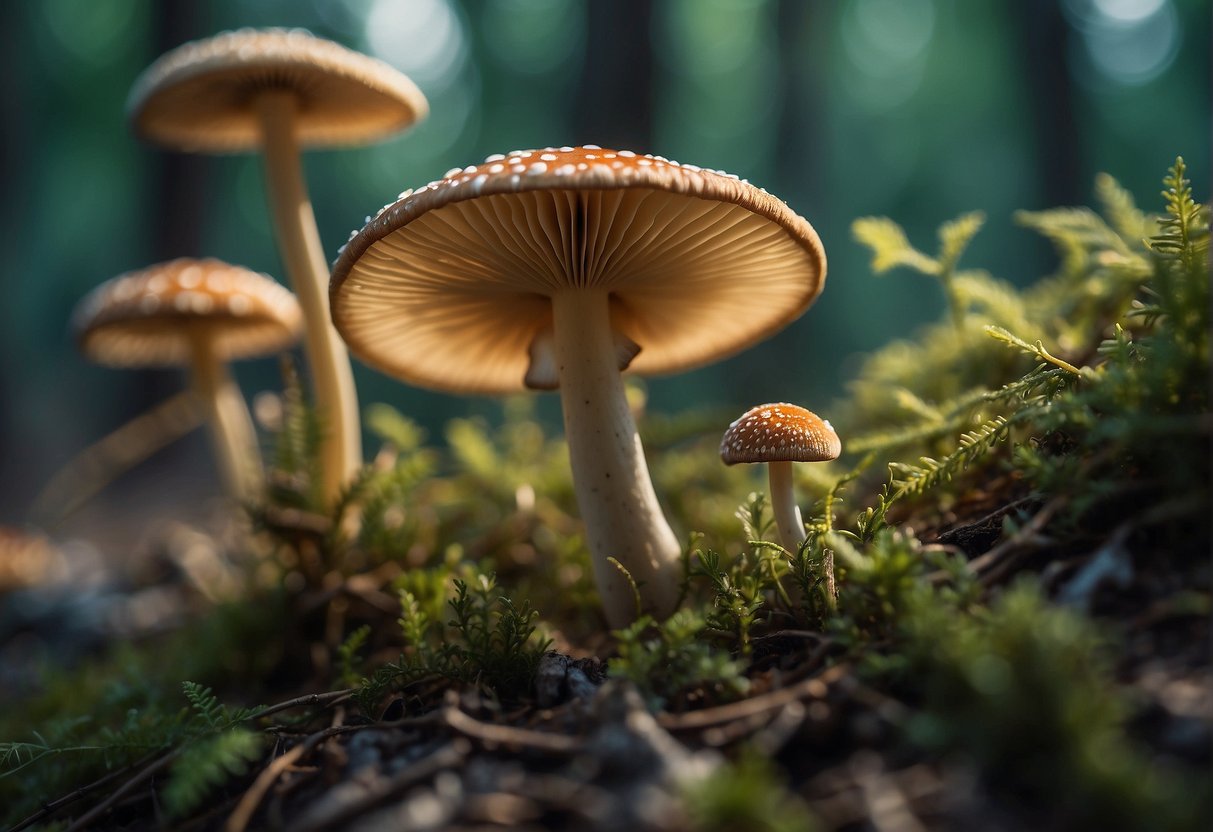
State Representative Initiatives
State Rep. Tony Lovasco has been at the forefront of Missouri’s legislative efforts to shift the legal perspective on psychedelics. Reflecting on other regions’ policy shifts, your state deliberates a bill sponsored by Lovasco, which aims to decriminalize the use of psychedelic substances for individuals with terminal illnesses. This bill echoes broader movements in states like Oregon and Colorado, striving to offer relief and innovative therapeutic options.
Comparison with Other States
When comparing Missouri’s initiatives to states like California, Georgia, and Idaho, differences in progress and approach become evident. Oregon leads as the first in the United States to legalize the regulated medical use of psilocybin, and Colorado has significant proposals on the ballot. In contrast, conservative states like Georgia and Idaho maintain stricter stances, highlighting the varying attitudes across the country. With each state’s proposal, a patchwork of legalization unfolds, indicating a transformative era for psychedelic policy in America.
Possession, Use, and Cultivation
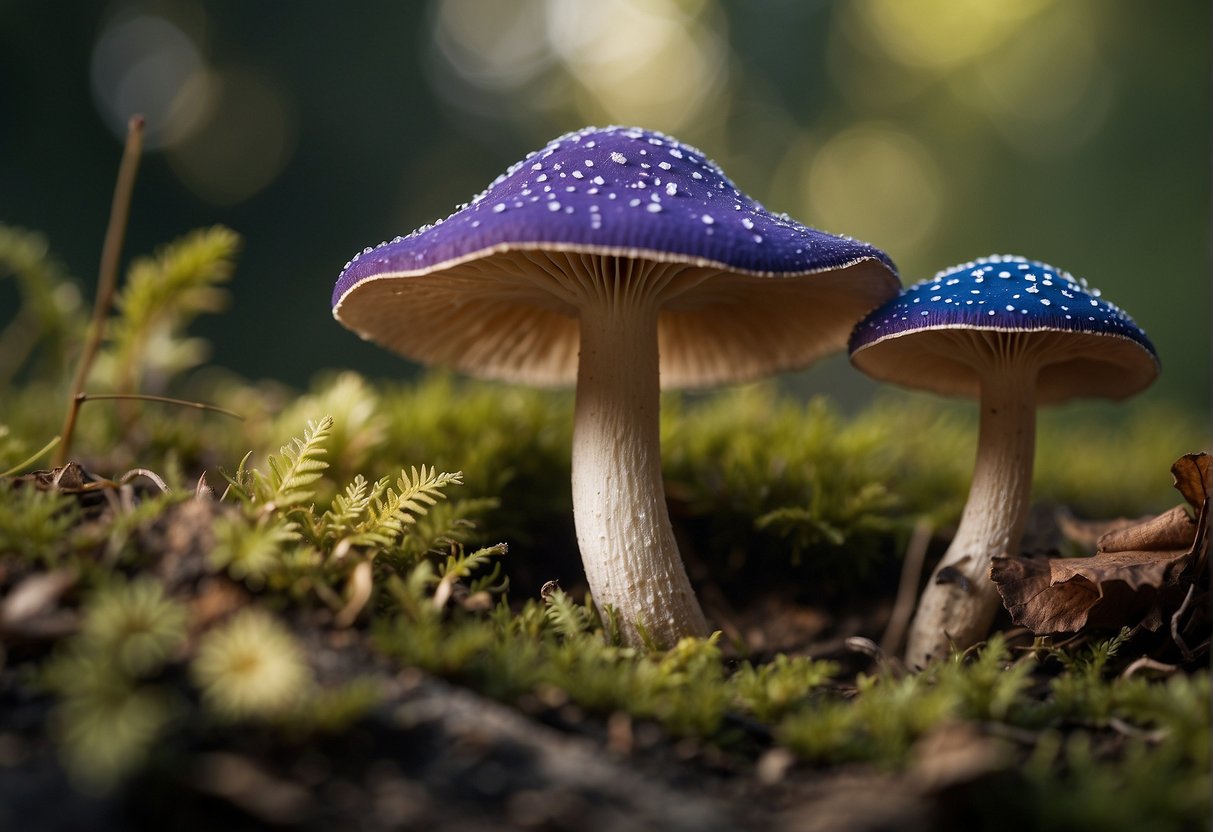
Under Missouri law, magic mushrooms are classified as a controlled substance due to their psychedelic effects. You should be aware of the stringent laws governing possession, use, and growth, which can result in significant legal consequences.
Consequences of Possession
If you possess magic mushrooms in Missouri, you’re violating state law; this can lead to prosecution with varying degrees of penalties. Possession is typically considered a felony, which may result in fines or imprisonment. Knowing the specific charges you could face is crucial, as they may impact your personal and professional life.
Personal Use and Growth
Missouri law does not distinguish between possession for personal use and possession with intent to distribute; both are illegal. Growing psychedelic mushrooms for personal use is also prohibited, and doing so can be classified as manufacture or cultivation of a controlled substance, a serious felony offense which could lead to steep fines and prison time.
Sale and Distribution
The sale and distribution of magic mushrooms carry heavier criminal penalties than simple possession. If you sell or distribute magic mushrooms, you could face higher levels of felonies, leading to more severe imprisonment terms and greater fines. Magic mushroom spores, however, remain legal as long as they are not germinated, since they do not contain psilocybin or psilocin, the active hallucinogenic compounds found in mature mushrooms.
Relevance to Medical Professionals
As a medical professional, understanding the legal landscape of psychedelic mushrooms in Missouri is integral to providing informed care. Your awareness of the current regulations affects treatment options and professional practices.
Clinical and Hospice Settings
In clinical and hospice environments, you must recognize that the use of psychedelic mushrooms for their therapeutic benefits remains tightly controlled. These substances have shown promise in medicinal use; however, in Missouri, their legal status reflects that they are Schedule I drugs. This classification indicates that mushrooms like psilocybin are considered to have a high potential for abuse and no accepted medical use, making them illegal for both clinical trials and active therapy within the state. As physicians and doctors responsible for patient care, the implication is that even discussing psychedelic mushrooms as a potential treatment could pose ethical dilemmas and professional conduct issues.
Professional Conduct and Risks
Your conduct as a professional in terms of discussing, recommending, or being involved in the drug manufacture or distribution of psychedelic mushrooms can have serious implications. If you are considering medicinal use in treatments, it’s imperative to stay informed about the latest legal developments. While there is a growing movement to reassess the status of these substances due to potential therapeutic benefits, particularly in end-of-life care, as of now, their use remains prohibited. This legal status means that as a professional in a clinic or hospice setting, you are obliged to avoid suggesting or administering these substances. Not only could this be dangerous for patients due to potential side effects and interactions with other medications, but it could also lead to legal repercussions for you as a practitioner, putting your professional license at risk.
Impact on Society
As you consider the legal status of psychedelic mushrooms in Missouri, it’s crucial to understand their impact on society, which encompasses both public health concerns and substance abuse issues.
Substance Abuse and Crisis
Psychedelic drugs, including natural psychedelics like psilocybin mushrooms, can lead to substance abuse in some cases. While many seek these substances for their potential as natural medicine or for recreational use, misuse can escalate into a crisis. In Missouri, it’s important to note that while substances such as LSD, MDMA, and ketamine are illegal, the city of St. Peters took specific action to ban the sale of Salvia divinorum, highlighting the local approach to preventing substance abuse related to natural psychedelics.
Public Health and Safety
Public health and safety are at the forefront of discussions about the legality of psychedelic substances. Natural psychedelics have been considered dangerous without proper oversight, and possession or distribution can lead to heavy fines or other legal repercussions in Missouri. However, there is a growing movement examining these substances’ ability to be used safely under controlled conditions, as research into therapeutic uses for DMT, ayahuasca, ibogaine, and mescaline continues to evolve. The link between these substances and improvements in mental health in some clinical studies is informing public health debates on whether certain psychedelics should be legal for therapeutic use.
Cultural and Historical Context
Your understanding of the legal status of psychedelic mushrooms in Missouri inevitably ties to the deep-rooted cultural and historical background of psychedelics, including how their traditional use contrasts with modern cultural shifts.
Traditional Use of Psychedelics
Psychedelics have been part of human societies for thousands of years. Indigenous groups across various continents have utilized natural psychedelics, such as ayahuasca and mescaline, for spiritual and medicinal purposes. Psychedelic mushrooms, specifically, have played a significant role in Mesoamerican cultures, where they were considered sacred and used for religious rituals and healing.
Modern Cultural Shifts
The modern cultural landscape has shifted significantly since the countercultural movements of the 1960s, where figures like Timothy Leary advocated for the use of psychedelic substances like LSD and psilocybin mushrooms to unlock new mental states and perspectives. Today, there’s growing interest in the potential therapeutic uses of hallucinogenic drugs, including dimethyltryptamine (DMT) found in ayahuasca and psilocybin from mushrooms, for treating mental health disorders. This interest is evolving into a broader conversation surrounding the decriminalization and legalization of certain substances. For instance, a push towards reforming laws around natural psychedelics has led to changes in local legislation—certain municipalities in the United States have started to decriminalize the possession and use of these substances, reflecting a significant cultural shift from previous decades.
Frequently Asked Questions
When considering the legal landscape of psilocybin mushrooms in Missouri, it’s crucial to understand the current laws and any recent legislative developments that may affect their legality.
What is the current legal status of psilocybin mushrooms in Missouri?
Psilocybin mushrooms are currently classified as a Schedule I controlled substance in Missouri. This means that their possession, sale, or use is illegal and can lead to criminal charges.
Are there any recent legislative changes affecting the legality of psychedelic mushrooms in Missouri?
There are no legislative changes that have been recently enacted in Missouri to alter the prohibited status of psychedelic mushrooms.
Can individuals be prosecuted for possessing psychedelic mushrooms in Missouri?
Yes, individuals found in possession of psilocybin mushrooms can face prosecution under state drug laws.
Are there medicinal or therapeutic exceptions for the use of psilocybin in Missouri?
Missouri does not recognize any medicinal or therapeutic exceptions for the use of psilocybin, as it is considered a Schedule I substance without accepted medical use.
Is it legal to grow psilocybin mushrooms for personal use in Missouri?
Growing psilocybin mushrooms for personal use remains illegal in Missouri and is subject to the same legal penalties as possessing them.
Has Missouri taken any steps toward the decriminalization of psychedelic mushrooms?
As of the latest information available, Missouri has not taken any steps toward the decriminalization or legalization of psychedelic mushrooms.

